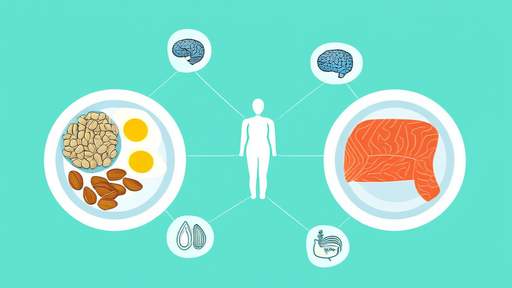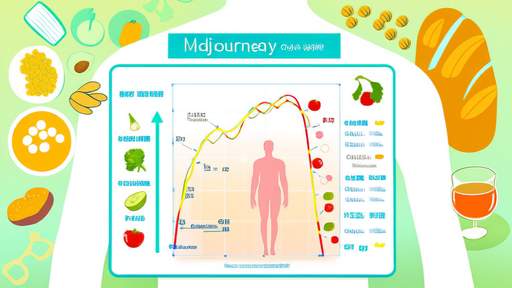The ketogenic diet, commonly known as keto, has surged in popularity over the past decade. Touted as a quick fix for weight loss and a potential remedy for various health conditions, it has garnered both fervent supporters and vocal critics. But beneath the hype lies a more nuanced reality—one that raises important questions about its suitability as a short-term solution versus its long-term implications for health.
The Science Behind Ketosis
At its core, the ketogenic diet is a high-fat, moderate-protein, and very low-carbohydrate eating plan. By drastically reducing carb intake—typically to less than 50 grams per day—the body enters a metabolic state called ketosis. In ketosis, the liver converts fats into ketones, which become the primary energy source instead of glucose. This shift is what proponents claim leads to rapid fat burning and weight loss.
Short-term studies have indeed shown promising results. Many individuals report significant weight loss within weeks, improved mental clarity, and reduced hunger pangs. Some research even suggests benefits for managing conditions like epilepsy, type 2 diabetes, and metabolic syndrome. These findings have fueled the diet’s reputation as a "short-term miracle."
The Short-Term Appeal
For those looking to shed pounds quickly, keto can be an attractive option. The initial drop in water weight, followed by fat loss, often provides a visible and motivating transformation. Additionally, the diet’s emphasis on fats and proteins can lead to increased satiety, reducing overall calorie intake without the gnawing hunger associated with traditional low-calorie diets.
Anecdotal evidence abounds with stories of people reversing insulin resistance, lowering blood sugar levels, and even experiencing improved energy. These short-term wins make it easy to see why keto has become a go-to for many seeking rapid health improvements.
The Long-Term Concerns
However, the picture grows murkier when examining the diet’s long-term sustainability and health effects. Critics argue that the extreme restriction of carbohydrates—a macronutrient group that includes fruits, vegetables, and whole grains—may lead to nutritional deficiencies over time. Fiber, vitamins, and minerals abundant in carb-rich foods are often lacking in strict keto regimens, potentially compromising gut health and immune function.
Another concern is the diet’s heavy reliance on fats, particularly saturated fats from animal sources. While the relationship between saturated fats and heart disease remains debated, some studies suggest that long-term high-fat diets could elevate LDL cholesterol levels, a known risk factor for cardiovascular issues. The absence of long-term, large-scale studies on keto makes it difficult to definitively assess these risks.
Metabolic Adaptation and Plateaus
Beyond nutritional gaps, the body’s adaptation to ketosis can pose challenges. Over time, metabolic rates may slow as the body becomes more efficient at using ketones for fuel. This can lead to weight loss plateaus, frustrating those who initially saw rapid results. Moreover, reintroducing carbohydrates after prolonged ketosis can cause bloating, digestive discomfort, and rapid weight regain—a phenomenon often dubbed "keto rebound."
Social and practical considerations also come into play. Dining out, attending gatherings, or even maintaining the diet while traveling can be arduous due to its restrictive nature. For many, the psychological toll of constant vigilance over food choices eventually outweighs the benefits.
Individual Variability and Medical Supervision
It’s worth noting that responses to keto vary widely. Some thrive on it for years, while others experience adverse effects like fatigue, constipation, or worsened lipid profiles within months. Genetic predispositions, underlying health conditions, and lifestyle factors all influence how one fares on the diet.
Medical professionals often caution against self-prescribing keto without supervision, especially for individuals with preexisting conditions like kidney disease or a history of eating disorders. Regular monitoring of blood markers, including cholesterol and kidney function, is advisable for those committed to long-term keto.
A Balanced Perspective
So, is keto a short-term marvel or a long-term hazard? The answer isn’t black and white. As a tool for rapid weight loss or managing specific health issues under guidance, it can be effective. But as a lifelong eating pattern, its risks and restrictions may outweigh the benefits for many.
Ultimately, the best diet is one that is sustainable, nutritionally complete, and tailored to individual needs. For some, keto may serve as a reset button, but for others, a more balanced approach—incorporating healthy carbs, fats, and proteins—might be the wiser path to lasting health.

By /Jun 5, 2025

By /Jun 5, 2025

By /Jun 5, 2025

By /Jun 5, 2025

By /Jun 5, 2025

By /Jun 5, 2025

By /Jun 5, 2025

By /Jun 5, 2025

By /Jun 5, 2025

By /Jun 5, 2025

By /Jun 5, 2025

By /Jun 5, 2025

By /Jun 5, 2025

By /Jun 5, 2025

By /Jun 5, 2025

By /Jun 5, 2025

By /Jun 5, 2025

By /Jun 5, 2025

By /Jun 5, 2025

By /Jun 5, 2025